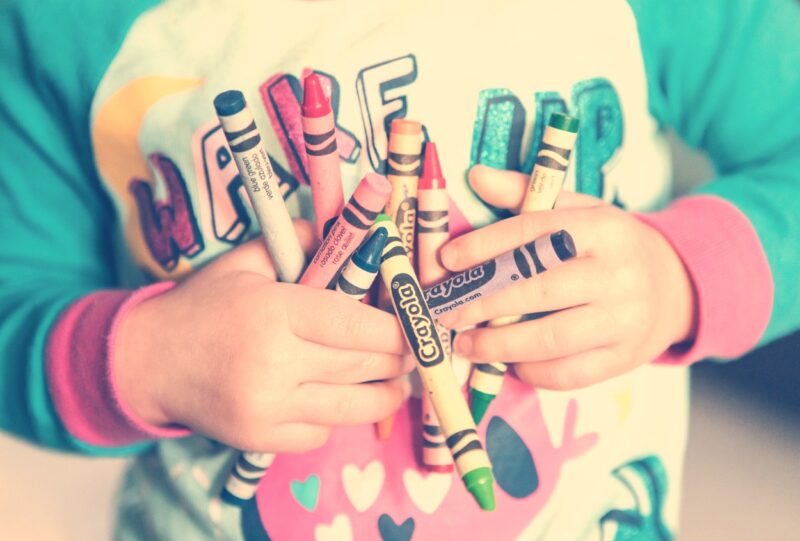The whole soldier doesn’t suffer—
it’s just the legs, the arms,
just blowing snow,
just meager rain.
The whole soldier shrugs off hurt—
it’s just missile systems “Hail” and “Beech,”
just bullets on the wing,
just happiness ahead.
On a battlefield outside Kyiv, last week, a soldier recited a poem. In a bunker, under the shelling, a violinist performed a soft, haunting melody: What a Moonlit Night, in the dark. In other shelters, people sang. At the Polish-Ukrainian border, a man has set up his piano. And in an apartment in Boston, two children are frantically drawing hearts, rainbows, seashells, and mountains, suns, many race cars and taxis, with Crayola crayons, to send in a box, with candy and books, to children elsewhere.
In 1605, Miguel de Cervantes wrote: “Love and war are the same thing, and stratagems and policy are as allowable in the one as in the other.” Centuries later, Robert Fulghum wrote:
“Maybe we should develop a Crayola bomb as our next secret weapon. A happiness weapon. A beauty bomb. And every time a crisis developed, we would launch one. It would explode high in the air – explode softly – and send thousands, millions, of little parachutes into the air. Floating down to earth – boxes of Crayolas.”
Bombs predate Crayola, which was developed in 1903; explosive gunpowder in cast iron shells was first launched in the 13th century. War itself is even older; the earliest recorded was in 2,700 B.C.,
but by then humans had been colouring for 400 years.
The ancient Egyptians invented coloured wax sticks in 3,100 B.C. For longer than violence, man has been using those deliciously childhood-smelling tools in superb shades of blues, reds, yellows, pinks, oranges, greens, to draw those hearts, rainbows, seashells, mountains, suns, race cars, taxis, and oceans and countries and planes and trains and Christmas trees and puppies.
The history of violence is old. The history of art is older. To imagine, to dream, to create. Incidentally, colour is 1.09 billion years older than humans.
just blowing snow,
just meager rain.
On war, today: shelling, machine guns, planes, clouds of smokes and speeches, evacuations, sanctions. Meanwhile; mass graves and exodus, cries and cries of famine and fear and mounting casualties and rubble.
just bullets on the wing,
just happiness ahead.
On love, today: in a port city besieged, people getting together and baking bread for everybody; 26,000 kilograms. People giving away coffee, water, and food to those in flight. Old women keeping order, countries opening borders, strangers offering Air BnBs, couches, apartments, stacks of paper and boxes of colouring crayons.
It doesn’t amount to a hill of beans, Rick said in Casablanca, and someone else said, lately, too, to someone. And they are right. But Cervantes also said that love “sometimes goes, sometimes flies; runs with one, walks gravely with another; turns a third into ice, and sets a fourth in a flame: it wounds one, another it kills: like lightning it begins and ends in the same moment: it makes that fort yield at night which it besieged but in the morning; for there is no force able to resist it.”
From that battlefield in Kyiv, last week, the last lines of the poem:
I wish I could see it
I ask myself
Who would believe
Your love burned to ashes
The jungle of my soul.
– Hamid Mosadegh
